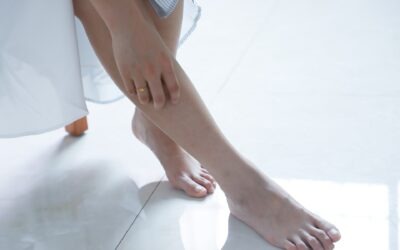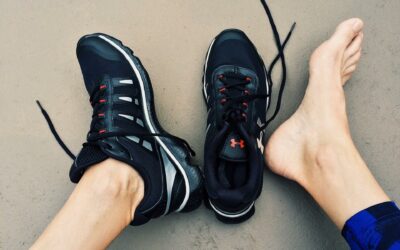Shockwave therapy is a non-surgical treatment used over many areas of the body for painful disorders such as tendonitis. As specialist chiropterans, we use this treatment in-house to help eliminate pain caused by plantar fasciitis.
Shockwave therapy is a gentle, highly-effective therapy that is considered effective and safe.
What does shockwave therapy do?
Using a shockwave gun, an acoustic wave carries high energy to painful areas of myoskeletal tissue, either from chronic conditions or as a result of an injury.
The energy promotes the regeneration of tendons and other soft tissues; this increases the blood flow to the affected area and stimulates cell regeneration; this speeds up the healing process.
HOW QUICKLY DOES SHOCKWAVE THERAPY WORK?
The treatment is typically given over the course of 3 weekly sessions; however, the benefits of the treatment will come after.
As this treatment is administered to stimulate healing, you won’t be able to feel the full benefit until weeks after treatment.
This can differ from patient to patient and includes factors such as the severity of pain/injury and patient health.
The outcome is assessed at a 12-week follow-up session.
WHAT ARE THE RISKS AND SIDE EFFECTS OF SHOCKWAVE THERAPY?
Since the treatment is designed to trigger an anti-inflammatory response, the side effects of shockwave therapy are limited to –
-
Bruising
-
Swelling
-
Tingling or numbness
-
Slight pain
During treatment, you may feel some pain and discomfort, depending on the level of pain you are already experiencing.
The treatment itself will only last between ten and fifteen minutes, and most if not all of our patients find the discomfort tolerable in such a short treatment time.
After treatment, you will be able to move your foot as normal; however, 2-4 hours after treatment, you may feel some discomfort. Most patients will attend appointments with a friend or family member who will be able to help them get home and will take 24-48 hours off after treatment to rest.
HOW SUCCESSFUL IS SHOCKWAVE THERAPY?
Clinical trials, conducted by some of the world’s leading medical professionals, have shown shockwave therapy to be a successful treatment in a range of foot and ankle conditions. Results show an overall success rate of 77%.
A review at 12 weeks is recommended following your final treatment. If your symptoms persist at this stage, you will be advised of alternative therapies or surgery by your medical practitioner.
Our experience suggests that the patients who show a healthy, speedy recovery have used other treatment forms, such as orthotics, NSAIDs, and shockwave therapy to boost healing time.
WHAT OTHER CONDITIONS DO YOU TREAT USING SHOCKWAVE THERAPY?
Here at Heena Patel Podiatry we offer a full range of treatments and can provide an extensive list of conditions we treat, however, our shockwave therapy treatments are limited to foot and ankle conditions such as –
-
Plantar heel pain
-
Plantar fasciitis
-
Posterior heel pain
-
Insertional Achilles tendinopathy
AM I ELIGIBLE TO HAVE SHOCKWAVE THERAPY?
Not everyone will be able to have this treatment, so be sure to consider the restrictions below before booking.
You cannot have shockwave therapy for Achilles tendinopathy or plantar fasciitis if you –
-
Are under the age of 18
-
Are pregnant or trying for a baby
-
Are taking certain types of medication (these can be discussed with your podiatrist)
-
Have a blood clotting disorder
-
Have been diagnosed with bone cancer or are being treated for active cancer
-
Have an existing infection in your foot
-
Have a history of Achilles tendon or plantar fascia ligament rupture
-
Have had a steroid injection into the affected area in the previous 12 weeks
For more information on shockwave treatments or to book your appointment with one of our specialists, get in touch today.
We are fully open and functional in this lockdown for all face to face appointments.



